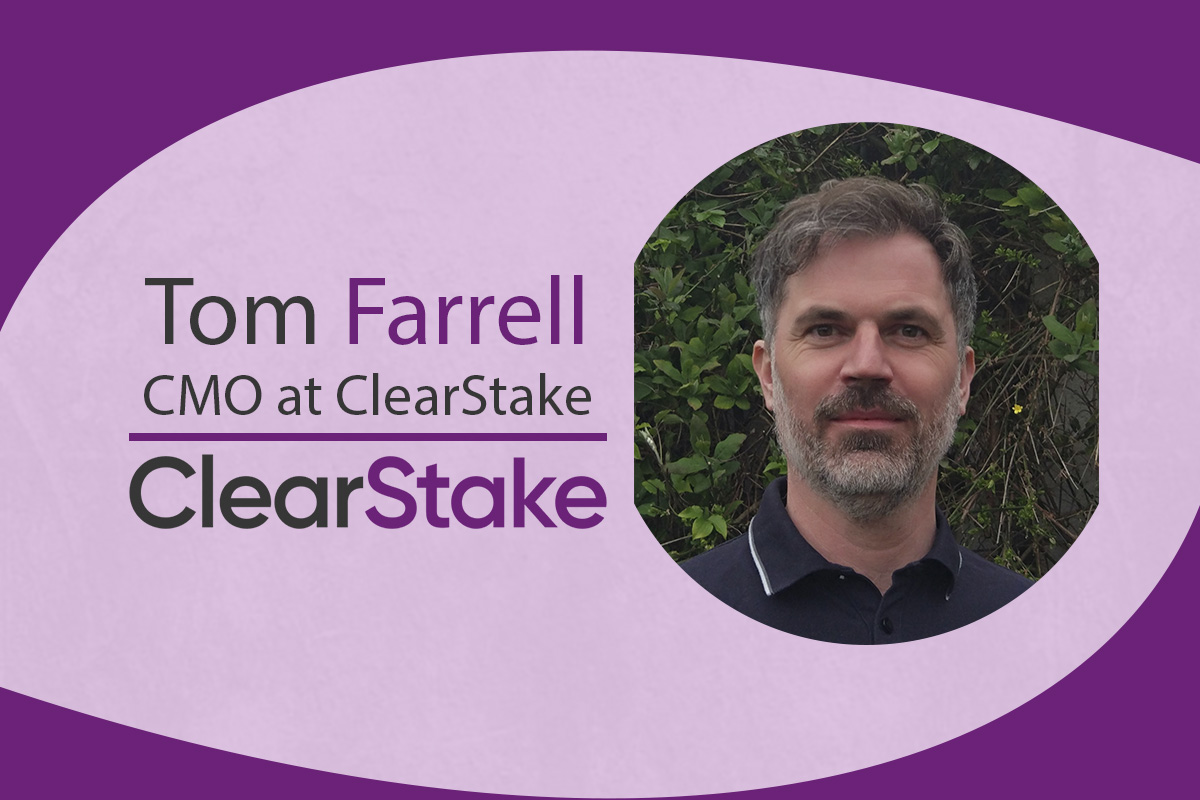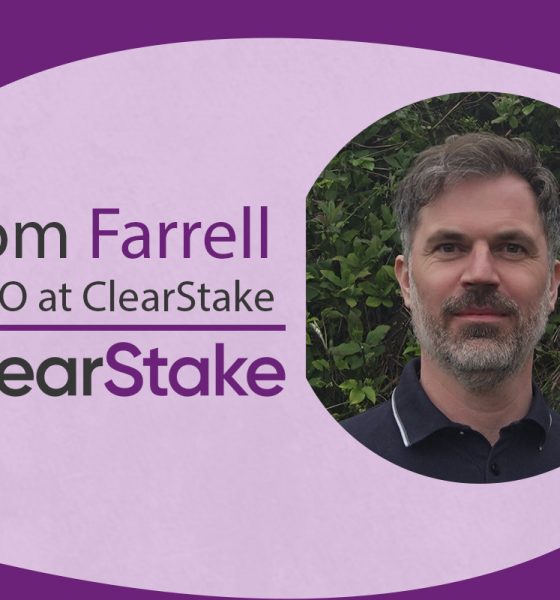

Compliance Updates
Our UKGC consultation response: Failing to protect the vulnerable should not be the White Paper’s legacy
The dust has settled and the process is complete. The consultation on the proposed changes outlined in the UK Gambling White Paper is closed so now we just have to wait and see. Whilst we do so, we thought that in the spirit of transparency, we would share our own thoughts, more or less as they were communicated in our consultation response to the UK Gambling Commision.
Offering a real-time customer risk profiling tool, ClearStake’s focus was obviously on affordability checks. But then, much of the industry’s attention has been on this topic over the last few months. This is, to our mind, the single most important challenge facing the sector. Addressing it in the right way, a way that protects both punters and operators, will be the key to a sustainable, profitable future.
And with that goal uppermost in our mind, here is what we said:
1. Affordability checks must use real financial data
Certainly at the levels of spend proposed as meriting more thorough checks (£1,000 in a day or £2,000 over the space of three months), we don’t believe there is any real substitute for real financial data, by which we mean bank data. There is simply no other way of establishing whether a player can afford to lose this amount of money or not. Everything else – including data from credit reference agencies – is guesswork. We believe that the single greatest mistake that could be made during this process is not solving the problem of financial harm caused by gambling. That won’t be an issue if the government requires decisions to be made by operators in possession of a proper financial picture of their customers.
2. We can solve two problems at once
The consultation focused on affordability checks, but it would be almost perverse to ignore the wider reality at play here. Operators also have to perform anti money-laundering and source-of-funds (SOF) checks on their customers, and they do so by looking at bank statements. Given this is the case, it makes a lot of sense to us to effectively combine both these requirements within a single check.
3. At higher spend levels, it makes sense to keep customers connected
There has been a lot of talk about how frequently checks should take place, or to put that another way, whether it should be necessary to go back to a customer within six months or a year if they have already passed a check. To us, this rather misses the opportunity presented by Open Banking in particular. After the first check, assuming the player allows it, any checks in future can be entirely frictionless. The connection can remain in place and used when necessary (and only when necessary!) in order to make the ongoing compliance relationship as smooth as possible. We don’t expect ongoing connection to be mandated, but it should certainly be held up as best practice for all concerned.
4. Some of the proposed data points make little sense
When a solution that takes guesswork out of the equation is available, does it really make sense to suggest that postcodes and job titles are meaningful ways to determine an individual’s financial situation? We don’t think so. We believe that continuing to ‘lean in’ to data like this gives a misleading impression that it is good enough. It isn’t. Even as part of a broader decision-making process, it is very difficult to see where some of these data points fit in. You could say the same, of course, about missed loan repayments from three years ago.
5. The solution exists – why cobble together a new one?
Hovering behind the entire consultation process appears to be a not-quite-defined ‘solution’ to the affordability challenge. This is apparent in the various hints towards the use of CATO data (let’s just say it, even if the Commission aren’t willing to) and a hodge-podge of random data points in order to make affordability decisions, as part of a system that would have to be piloted in order to ensure a) it works and b) it doesn’t create data security issues.
Leaving aside the absurdity of asking us to judge the merits of an approach that hasn’t actually been defined, we would simply point out that in Open Banking, a solution to this challenge already exists. One that is already used by over 7 million people in the UK, by most UK operators to handle payments, and already used to handle affordability and SOF checks by forward-thinking operators. Why on earth are we re-inventing the wheel?
So there you have it. That’s what we told the consultation, albeit in language a little less colourful. I hope they listen.
BetAlert
Brazilian Institute of Responsible Gaming Launches BetAlert

The Brazilian Institute of Responsible Gaming (IBJR), an entity that brings together the main operators in Brazil and worldwide, announces the launch of BetAlert, an unprecedented tool that allows any user to quickly and easily verify whether the betting site they intend to use is regulated by the Federal Government. The initiative is part of the “No More Elephant in the Room” campaign, which includes a TV commercial, radio spots, airport panels, and social media actions. Its goal is to guide bettors in choosing platforms regulated by the Secretariat of Prizes and Betting, under the Ministry of Finance.
Conducted between April and May 2025 with 2000 adult bettors, research by the Locomotiva Institute served as the basis for the economic study prepared by LCA. The survey estimates that between 41% and 51% of the Brazilian betting market still operates illegally. The activity of these irregular platforms reflects an alarming fiscal impact: between R$ 1.8 billion and R$ 2.7 billion went uncollected in just three months – which could reach R$ 10.8 billion in one year.
Named BetAlert (https://betalert.com.br/), the technology runs on an exclusive microsite that offers an interactive experience for those looking to bet safely and obtain tips on how to differentiate regulated betting sites from illegal ones. Simply enter the URL of any betting site, and the tool immediately indicates whether the platform is licensed. If it is regulated, the following message appears: “All good. This betting site is authorized by the Federal Government.” If not, the system displays a creative alert integrated into the campaign by agency We: “Attention. This betting site is not authorized by the Federal Government,” reinforcing the illegality of the platform consulted.
“IBJR greatly values the use of tools and technologies that contribute to spreading knowledge about the sector. BetAlert is extremely important, and we hope it will be widely used by bettors and Brazilian society. Our goal is to ensure that people have access to all the benefits of regulation, the core of which is the safety of those who bet,” said Fernando Vieira, Executive President of IBJR.
The post Brazilian Institute of Responsible Gaming Launches BetAlert appeared first on Gaming and Gambling Industry in the Americas.
Compliance Updates
German Betting Association Warns of Rise of Black Market Gambling

Only one in twelve German betting websites is legal, warns the German Sports Betting Association (DSWV) at the start of the UEFA Champions League season: there are at least 382 illegal German-language websites offering sports betting compared to just 34 legal betting sites. The DSWV refers to a corresponding evaluation by the Joint Gambling Authority of the federal states (GGL) for the year 2024.
“Online, it’s 11:1 in favor of the black market and that puts players at risk. In the legal sports betting market, players benefit from guaranteed player protection, reliable payouts and tax revenue for the common good. Illegal providers in the black market, on the other hand, do not adhere to any rules, offer no security and have a higher risk of gambling addiction,” Mathias Dahms, President of the German Sports Betting Association (DSWV), said.
With the start of the UEFA Champions League, the second most-bet competition in Germany after the Bundesliga, the volume of betting has skyrocketed.
“Players need to be particularly vigilant at this time of year so that they don’t accidentally end up with illegal providers. This is another reason why it is important that the legal providers are present with perimeter boards and TV advertising during the Champions League matches,” Dahms said.
What many players do not know is that they are not only taking a higher risk, but are also liable to prosecution. Participating in unauthorized sports betting can result in a prison sentence of up to six months or a fine.
How to recognise legal betting providers:
• Only legal providers may advertise on stadium boards and on television during sporting events such as the Champions League or Bundesliga.
• Only providers on the GGL whitelist are legal in Germany. The list is publicly available at www.gluecksspiel-behoerde.de/whitelist.
• Legal providers have a clearly visible GGL permit logo on their website.
• Only legal providers offer comprehensive player protection measures such as deposit limits, player bans and monitoring of conspicuous gaming behavior.
• Only legal providers contribute to the funding of support services for gamblers at risk of gambling addiction, such as the anonymous and free hotline 0800-1372700 or the website check-dein-spiel.de of the Federal Institute of Public Health (BIÖG).
• With legal providers, payouts are guaranteed and the stakes are properly taxed.
“It is in the common interest of regulators, providers and players to strengthen the legal market and push back the black market. This is the only way to ensure player protection, integrity and tax revenues,” Dahms said.
The post German Betting Association Warns of Rise of Black Market Gambling appeared first on European Gaming Industry News.
Compliance Updates
Ukraine’s PlayCity Begins Issuing Licenses to Gambling Operators

The Cabinet of Ministers of Ukraine has adopted a resolution on licensing conditions in the gambling sector, which allows the state agency PlayCity to begin issuing licenses to gambling organisers and confirming previously issued ones.
“As a result, this will generate almost UAH 50 million (1.028.956,00 Euro) in additional revenues to the state budget from license fees in the near future,” PlayCity reported on Telegram.
It is noted that to obtain a license, impeccable business reputation, lack of ties with the aggressor state and implementation of all necessary mechanisms for responsible gaming are required.
PlayCity clarified that such requirements apply to both those who are only applying for a license and current licensees. Current licensees have two months to submit documents to PlayCity on compliance with the requirements.
The message emphasises that if the requirements are not met, sanctions in the form of fines or termination of the license may be applied to the organisers of gambling.
“The state will direct additional budget revenues to strengthen defense capabilities, in particular, to purchase drones for the Defense Forces,” PlayCity added.
The post Ukraine’s PlayCity Begins Issuing Licenses to Gambling Operators appeared first on European Gaming Industry News.
-

 gaming3 years ago
gaming3 years agoODIN by 4Players: Immersive, state-of-the-art in-game audio launches into the next generation of gaming
-
EEG iGaming Directory9 years ago
iSoftBet continues to grow with new release Forest Mania
-
News8 years ago
Softbroke collaborates with Asia Live Tech for the expansion of the service line in the igaming market
-
News7 years ago
Super Bowl LIII: NFL Fans Can Bet on the #1 Sportsbook Review Site Betting-Super-Bowl.com, Providing Free Unbiased and Trusted News, Picks and Predictions
-
iGaming Industry8 years ago
Rick Meitzler appointed to the Indian Gaming Magazine Advisory Board for 2018
-
News7 years ago
REVEALED: Top eSports players set to earn $3.2 million in 2019
-
iGaming Industry8 years ago
French Senator raises Loot Boxes to France’s Gambling Regulator
-
News7 years ago
Exclusive Interview with Miklos Handa (Founder of the email marketing solutions, “MailMike.net”), speaker at Vienna International Gaming Expo 2018













